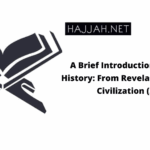Surah Al-Ma’un Verses 1-7: Reading, Meaning, and Its Importance 📖✨
Welcome to our in-depth exploration of Surah Al-Ma’un, verses 1 through 7. This critical segment of the Quran offers profound insights into the values of compassion, sincerity, and justice. Whether you are a devout Muslim seeking to deepen your understanding or someone interested in the ethical teachings of Islam, this analysis will provide a comprehensive look at the significance of these verses. We invite you to join us as we delve into the reading, meaning, and importance of these verses, exploring how they can inspire and guide you in your daily life.
Surah Al-Ma’un, which translates to “The Small Kindnesses,” serves as a poignant reminder of the fundamental principles of faith. This chapter, though brief, addresses crucial aspects of Islamic morality and the behavior expected of believers. The verses we are focusing on today tackle themes of social responsibility, sincerity in worship, and ethical conduct. Understanding these verses is not only essential for spiritual growth but also for fostering a compassionate and just society.
In this article, we will provide a detailed explanation of each verse, examining their meanings and implications. We will also discuss the importance of these teachings in the context of contemporary issues and personal development. By the end of this analysis, you will have a deeper appreciation for Surah Al-Ma’un and its relevance in guiding ethical behavior and sincere worship.
Also Read
We hope that this article will serve as a valuable resource for anyone seeking to align their actions with the teachings of Islam. As you read through our analysis, we encourage you to reflect on the messages conveyed in these verses and consider how they can be applied in your own life. The principles outlined in Surah Al-Ma’un are timeless and offer practical guidance for living a life of integrity and compassion.
For further insights, we recommend exploring additional resources on Surah Al-Ma’un, including scholarly articles and commentary. This deeper engagement will enhance your understanding and help you fully appreciate the significance of these verses. Let us embark on this journey of exploration and reflection together, as we uncover the profound messages contained within Surah Al-Ma’un.
Understanding Surah Al-Ma’un Verses 1-7
Verse 1: “Have you seen the one who denies the Recompense?”
Surah Al-Ma’un begins by addressing those who reject the idea of divine recompense, questioning their disbelief in the Day of Judgment. This verse highlights a fundamental aspect of faith—the belief in an afterlife where justice will be served. By challenging those who deny the Recompense, the verse emphasizes the importance of acknowledging the ultimate accountability of one’s actions.
This verse serves as a stark reminder of the consequences of disbelief and the necessity of recognizing the finality of divine judgment. It underscores the significance of faith in the unseen and the need for believers to remain steadfast in their belief in the Day of Judgment. The denial of recompense is portrayed as a grave moral failing, reflecting a lack of understanding of the core tenets of faith.
Understanding this verse helps reinforce the importance of maintaining a strong belief in the afterlife and the principles of divine justice. It encourages believers to reflect on their own faith and to remain vigilant in upholding the tenets of Islam, particularly the belief in accountability and recompense.
Verse 2: “That is the one who drives away the orphan,”
This verse criticizes those who mistreat or neglect orphans, highlighting the ethical obligation to care for vulnerable members of society. By addressing the mistreatment of orphans, the verse underscores the importance of compassion and justice. In Islamic teachings, caring for orphans is a significant act of charity and a reflection of one’s moral character.
The treatment of orphans is a crucial aspect of social justice in Islam. This verse serves as a reminder of the responsibility to support and protect orphans, ensuring their well-being and dignity. It also reflects broader principles of empathy and ethical conduct, reinforcing the need to care for those in need and to act with integrity.
By emphasizing the importance of supporting orphans, this verse highlights the broader ethical obligation to act with kindness and fairness. It serves as a call to action for believers to uphold the rights of vulnerable individuals and to contribute to a just and compassionate society.
Verse 3: “And does not encourage the feeding of the poor,”
This verse addresses the failure to support and provide for the poor, emphasizing the ethical responsibility to assist those in need. The verse criticizes those who neglect their duty to help the less fortunate, highlighting the importance of active charity and social responsibility. Feeding the poor is a fundamental aspect of Islamic ethics, and this verse serves as a reminder of the need to prioritize acts of kindness and generosity.
The emphasis on feeding the poor underscores the broader principle of social justice and the need to address poverty and inequality. By condemning the failure to support the poor, the verse calls for a more proactive approach to charitable actions and highlights the importance of ensuring that everyone has access to basic necessities.
Understanding this verse helps reinforce the importance of charitable behavior and the ethical obligation to support those in need. It encourages believers to engage in acts of kindness and to contribute to the well-being of others, reflecting the core values of Islam.
Verse 4: “So woe to those who pray,”
This verse addresses those who perform prayers without sincerity, highlighting the importance of genuine devotion and attentiveness in worship. The term “woe” signifies a warning or admonishment for those whose prayers are performed insincerely or with a lack of commitment. The verse emphasizes the need for authenticity in religious practices and the importance of aligning one’s actions with the principles of faith.
Insincere prayer undermines the purpose of worship and spiritual connection, reflecting a lack of genuine faith. This verse serves as a reminder to perform prayers with sincerity and attentiveness, ensuring that one’s worship reflects true devotion and commitment to God.
By addressing the issue of insincere prayer, this verse underscores the importance of authenticity in religious practices. It encourages believers to approach their worship with sincerity and to ensure that their actions align with the principles of faith and spirituality.
Verse 5: “Those who make a show of their deeds,”
This verse condemns the act of performing religious deeds for the purpose of gaining recognition or praise from others. The verse highlights the importance of performing good deeds with sincerity and without seeking external validation. Showing off one’s deeds undermines the true purpose of worship and charitable actions, reflecting a lack of humility and authenticity.
Hypocrisy in religious practices, such as performing deeds for show, is a serious issue in Islam. This verse serves as a reminder to approach acts of worship and charity with genuine intention and to avoid seeking praise or recognition from others. True devotion is reflected in the sincerity of one’s actions and the humility with which they are performed.
By addressing the issue of hypocrisy, this verse encourages believers to focus on the true purpose of their actions and to ensure that their deeds are performed with integrity and authenticity. It reinforces the importance of aligning one’s intentions with the principles of faith.
Verse 6: “And withhold simple assistance,”
This verse criticizes those who fail to provide even basic assistance, highlighting the ethical obligation to offer help and support to others. The term “simple assistance” refers to small acts of kindness and support that are often overlooked but are essential for maintaining a compassionate and just society. By condemning the withholding of such assistance, the verse emphasizes the importance of fulfilling one’s social responsibilities.
Providing simple assistance, such as helping those in need or offering support in everyday situations, is a fundamental aspect of ethical behavior in Islam. This verse serves as a reminder to prioritize acts of kindness and to ensure that one’s actions reflect a commitment to social responsibility and compassion.
Understanding this verse helps reinforce the importance of small acts of kindness and the need to contribute to the well-being of others. It encourages believers to engage in everyday acts of support and to uphold the principles of empathy and generosity.
Verse 7: “Those who pray while being heedless,”
This final verse addresses those who perform prayers with a lack of attentiveness or focus, highlighting the importance of mindfulness and sincerity in worship. The term “heedless” refers to a state of being inattentive or distracted during prayer, which undermines the spiritual significance of worship. The verse emphasizes the need for full engagement and devotion during prayers.
Performing prayers with attentiveness and mindfulness is crucial for maintaining a strong spiritual connection and ensuring that one’s worship reflects genuine devotion. This verse serves as a reminder to approach prayers with a sense of reverence and focus, avoiding distractions and ensuring that one’s worship is sincere and meaningful.
By addressing the issue of heedlessness in prayer, this verse encourages believers to cultivate mindfulness and attentiveness



